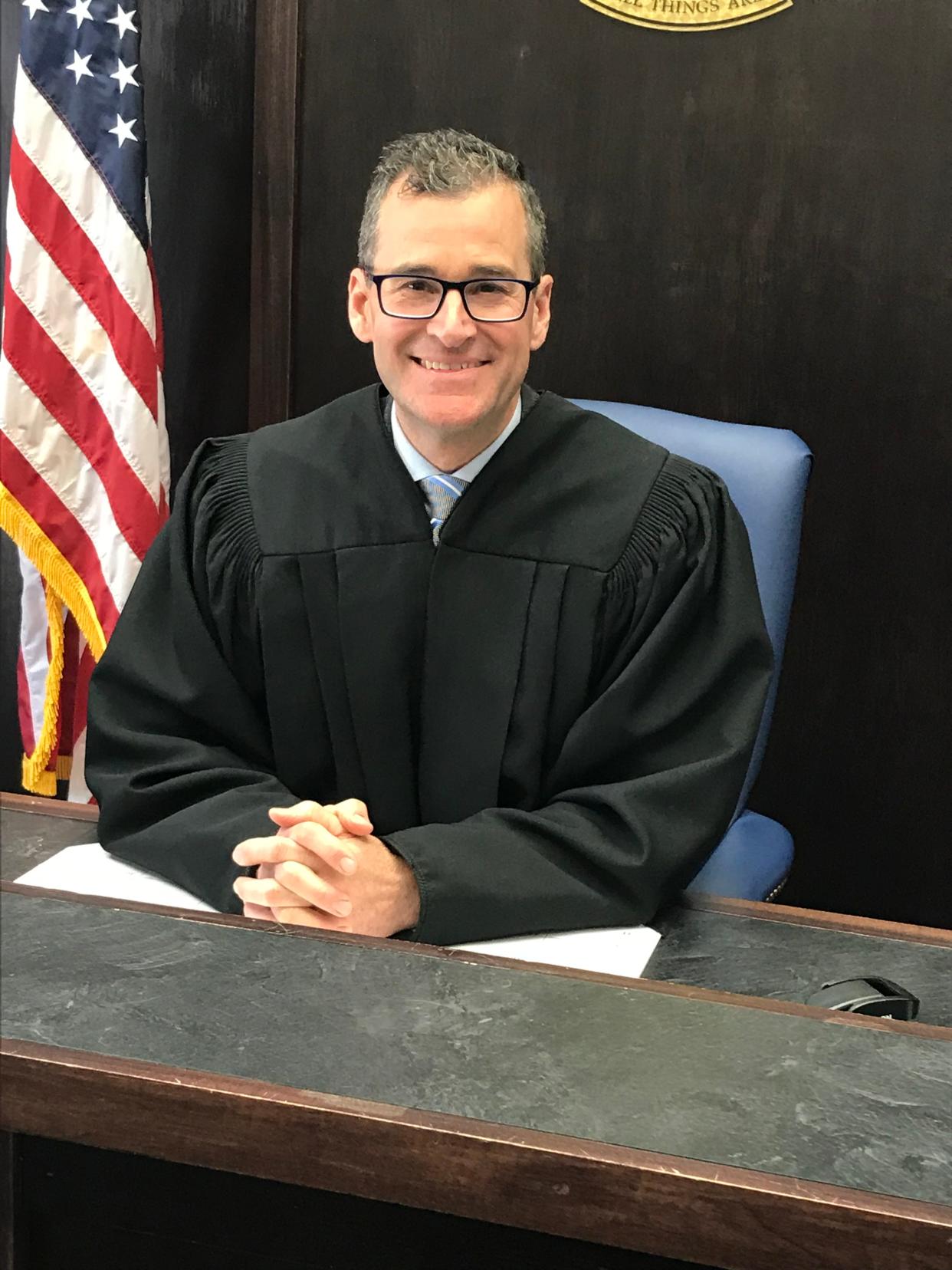Commissioners OK Juvenile Court pay raises after testy debate

The Richland County Commissioners have approved a request by Juvenile Court for a supplemental $45,794 appropriation for parity pay raises for the balance of the year for deputy clerks and youth specialists in the detention area.
The decision followed a contentious discussion Tuesday with Judge Steve McKinley and Court Administrator Brian Bumpus about larger raises given at the first of the year to the highest paid administrative employees and the methodology for determining their pay.
The court asked commissioners last month for extra money to raise the starting pay for deputy clerks and youth specialists in the detention area from $14 per hour to $15 per hour, which would affect 29 of the court’s 75 employees.
At that time, Bumpus said officials looked at deputy clerk wages around the county and found that those in Juvenile Court were lowest of all. He said a pay raise was needed to retain deputy clerks as well as youth specialists who were leaving for other area agencies such as Abraxis, Foundations for Living and Mohican Youth Academy.
No questions on raises for lower-paid workers
Commissioners had no problems with the increases for the lower paid employees but had questions about those for magistrates, the chief deputy clerk and other administrators. Chairman Tony Vero pointed out that one person received a 10.5% increase this year, two others received more than 11% and another got a 15% hike.
Vero said the board agrees that it does not have the right to set court salaries and those for other elected offices and that courts have the additional ability to order their budgets.
“Where we disagree is if a court in particular, not just yours, comes to the commissioners and says they need what you’re presently deeming as a parity increase because there are people on the low end who they feel are below market rate, then wouldn’t it only stand to reason the reverse could be true where the court has people on the high end who shouldn’t receive it,” he added.
Vero pointed out that that Juvenile Court and detention center make up 13% of the general fund budget and that commissioners fully funded the court’s detention request. He also said Juvenile Court and detention have the five highest paid nonelected officials in the general fund and cannot say they’re not properly compensated.
Vero also was critical that the court used figures from Greene, Licking, Medina and Delaware counties to help determine salaries for top administrators, noting that Delaware County is the wealthiest county in Ohio. He said the county’s consultant used 13 counties including adjoining counties and those of similar size, economies and demographics to do the wage study that was the basis for a wage scale that was approved last year for departments under board jurisdiction.
McKinley explained that some of the surrounding counties do not have the same caseload or a detention center like Richland County has. He justified the salaries paid to magistrates and top administrators, a number of whom are paid more than $90,000 annually, by pointing out their experience ranges from 23 to 40 years in their fields.
“I have a significant responsibility to protect youth and a very significant court in this community and the success of our youth depends on having quality people in place, particularly in our detention facility,” McKinley said. “We want people who are there who are quality people who care about young people and they need to be compensated for that.”
Commissioner Darrell Banks told the judge that the total $275,000 given to the court employees making the top three salaries is enough money to give raises to the lowest paid.
“I’m talking about taxpayers’ money,” Banks said. “I think you have enough money. I just don’t think you’re using it wisely.”
Wage study underway for some offices
Vero said Clemens, Nelson and Associates is doing wage studies to develop wage scales for Domestic Relations Court and the Prosecutor, Auditor and Clerk of Courts offices and invited McKinley to participate in the next review. McKinley said he is willing to do a study and have a wage scale developed as long as it is not mandated by the commissioners, which would breach the separation of powers between courts and commissioners over fiscal authority.
Ohio law allows courts to mandate their budget requests, as long as they are necessary and reasonable.
Commissioners were asked how Tuesday’s discussion will impact 2023 budget discussions in the fall.
“As the judge has made clear, we can’t dictate who he pays how much to but it may be contentious,” Banks replied. “It depends on what they come back with. The ball’s in their court and we’ll decide at that time.”
Commissioner Cliff Mears said the board needs “better tools” going into the budget, pointing out that the figures presented by the court represented a four-year-old comparison.
“I don’t think that’s valid, considering the situation we’re in, in today’s market,” he said. “I really think we need wage and salary information that is objective and fair.”
Vero pointed out that the board approved the supplemental appropriation unanimously even though there were questions.
“I think we agree we do not have the right to set your salaries and that wage scales are just a tool, and we’ll get with you guys as we move through the next process and we’ll go from there.”
In other business on Tuesday, commissioners voted to abolish the maintenance repair worker position at Dayspring, Richland County’s assisted living facility. The board earlier agreed to put building repair and upkeep at Dayspring under the county maintenance department and created a custodian/driver position at the facility.
Commissioners also approved an internal policy manual for operation of the county dog shelter and Dog Warden’s office. The manual “tweaks” policies and procedures that already were in place.
This article originally appeared on Mansfield News Journal: Commissioners approve funds for Juvenile Court parity pay increase

